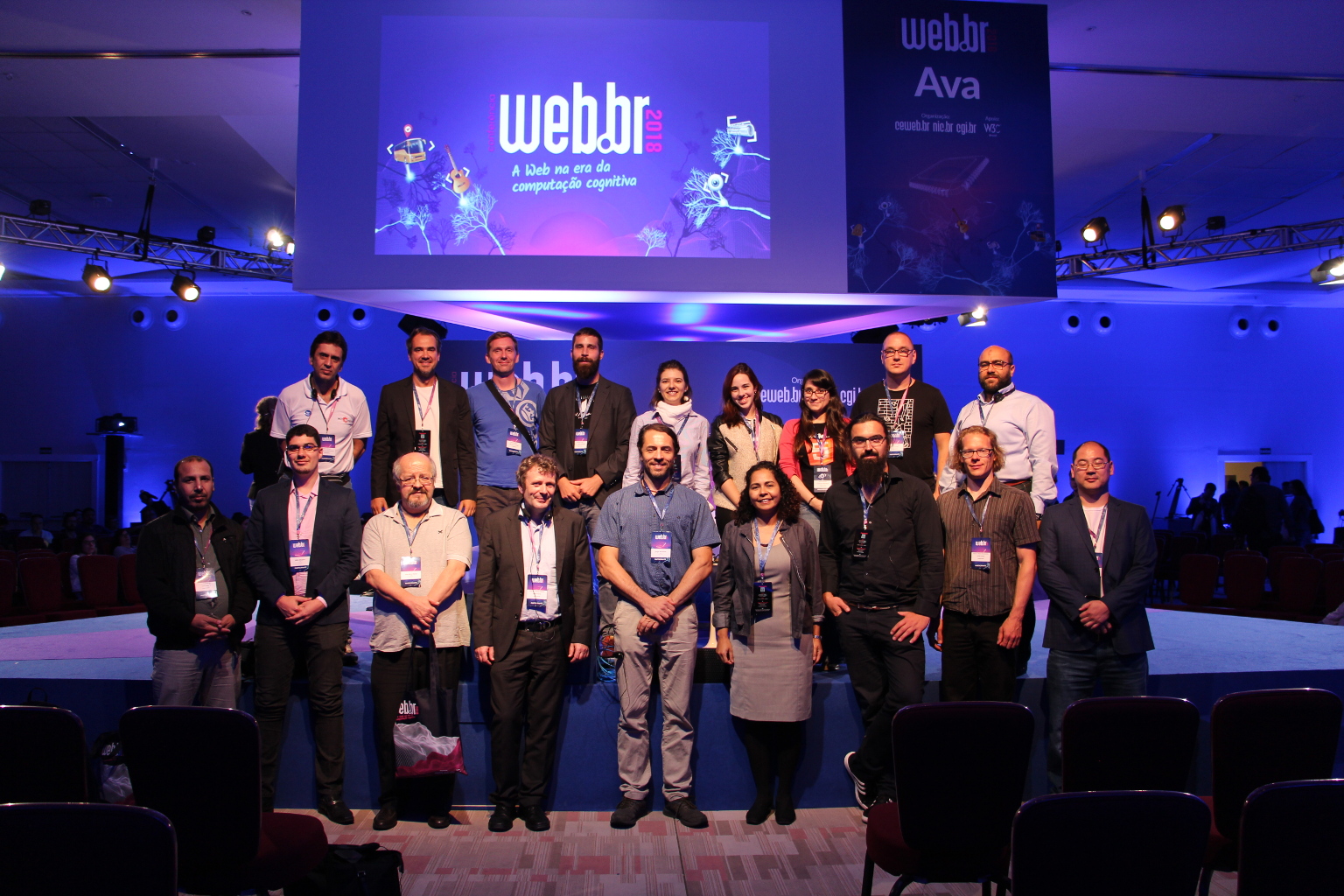DFG and FAPESP fund workshops in Brazil
(18.10.2018) Last year, the DFG and its Brazilian partner organisation FAPESP published an announcement for the establishment of new German-Brazilian cooperations through the funding of scientific events in Germany and the state of São Paulo. The result was three bilateral workshops in different scientific disciplines held in São Paulo in October 2018.

Brazilian and German researchers at Web.br 2018
© Ceweb.br
Industrial processes
The first workshop focused on the topic of Liquid Atomization and Spray Systems – LASS and took place on 2 and 3 October at the Polytechnic School (PoLI) of the University of São Paulo (USP). It brought together around 50 scientists researching key processes for the chemical, pharmaceutical, mechanical, metallurgical and food industries – from combustion systems to surface coating, metal atomisation and three-dimensional printing technologies.
Participants at the workshop included scientists from the research group BRAGECRIM (Brazilian-German Collaborative Research Initiative in Manufacturing Technology) – an initiative funded jointly by the DFG and its partner organisation CAPES. New bilateral initiatives financed by both funding agencies on Industry 4.0 and Advanced Digitalisation are expected to be launched shortly.
Following the opening of the workshop with presentations by Prof. Dr. Reinaldo Giudici (USP-FAPESP), Prof. Dr. Roberto Guardani (USP), Prof. Dr. Fernando Landgraf (USP) and Prof. Dr. Udo Fritsching (University of Bremen and Leibniz Institute for Materials Engineering – IWT), the Head of the DFG Office Latin America, Dr. Kathrin Winkler, presented funding opportunities for cooperations between Brazilian and German researchers.
Challenges in relation to open data
On 4 October, a workshop on the topic of open data management also took place in São Paulo during the annual Web.br conference held by the Web Technologies Study Centre (Ceweb.br). The event was organised jointly by the University of Leipzig and various Brazilian universities and research institutions. The programme for the day was divided into six sessions including a total of eleven presentations of possible research projects in this field.
The aim was to identify potentially complementary topics that could be addressed during future joint research projects. The group's next workshop is scheduled to take place in Germany in June 2019. For German participant Natanael Arndt, the event clarified the potential existing for cooperation in data research in the areas of digital humanities, access to resources and organisation of educational infrastructures, as well as participation in public administration.
“In Brazil, there is a close link to public administration, government and education – in particular with respect to the needs of an emerging nation. On the other hand, the German side possesses extensive experience in the development and use of systems and infrastructures for data integration and management. We are in the process of establishing communication channels and collaboration platforms designed to allow efficient cooperation despite the different time zones, languages and continents,” explained Arndt. These challenges will be addressed at the group's next workshop, planned to take place in Germany in June 2019.
Tropical diseases
The third workshop funded by the DFG and FAPESP, entitled “Proteases in chemistry and biology with particular consideration of neglected tropical diseases”, took place from 8 to 10 October at the Federal University of ABC (AFABC) in Santo André.
During the event, organised in partnership with Johannes Gutenberg University Mainz, a total of twelve influential Brazilian and German studies were presented with the aim of furthering knowledge of prevalent diseases in the tropics, such as dengue fever and leishmaniosis.
The second day of the workshop opened with presentations on funding opportunities for research cooperations with Germany. Dr. Kathrin Winkler and Anna Barkhausen, Head of the DAAD Information Centre in São Paulo, presented funding instruments to an audience of around 70 people and answered questions. Another workshop on the topic of tropical diseases will probably take place in the near future in Germany.